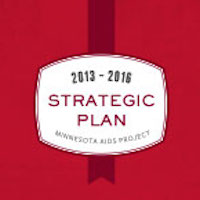Just days ago, a few miles north of the site of USCA 2014 in San Diego, the city held its annual AIDS Walk, an event first convened over a quarter century ago by individuals who pulled together to figure out how to apply compassion to crisis.Highlights: ASO Adjusts to Change - An RSR Reporting Tool - Federal Leadership Panel - AIDS.Gov and Miguel Gomez - Employment Tool for PLWH - TA and Training for Ryan WhiteExit Disclaimer
Today at USCA 2014, the world is much different as thousands of staff from ASOs, CBOs, clinics and other programs meet in a more hopeful time, to continue a walk, so to speak, to figure out their fit in the world of health care reform, to learn about PrEP, and to find new paths to prevention and engagement in care.
With dozens of workshops at a time, rows of exhibit booths and countless poster sessions, there’s far too much happening to capture it all. Here’s a sampling.
See also AIDS.Gov Updates from USCA2014.

ASOs Manage Change--AgainWhat’s an ASO to do when faced with monumental challenges like uncertain funding, changing priorities, and health care reform? Minnesota AIDS Project Executive Director Bill Tiedemann mapped out their path to a strategic plan for the agency.
- Create and issue an RFP and pick a vendor to carry out an assessment and create a design team to guide the process.
- Review the assessments in a retreat format.
- Phase 2 interviews/focus groups and design team review of findings.
- Create Products, including but not limited to a Strategic PlanExit Disclaimer.
The plan was launched in 2013. Stay tuned for how it all turns out for Minnesota AIDS Project, which, like most ASOs, is quite familiar with being in a constant state of evolution, from their first days in 1981 as a volunteer agency focused on palliative care to later transition to professionalize their workforce and adjust to advances in HIV treatment to, most recently, adapting to health care reform.
See TA and training for ASOs/CBOs from the HRSA/HAB funded National Center for Innovation in HIV/AIDS CareExit Disclaimer.
Tool Helps Providers Report Client Level Data

New York City developed a reporting tool to help Ryan White agencies in reporting their required client level data reports to HRSA. Here’s the story in brief, from Julie Cohen of the New York City Department of Health and Mental Hygiene, who is presenting a poster session on this new tool.
Years in the making HRSA/HAB has developed a Ryan White client level data reporting system to gauge use of funds and service outcomes. Called the RSRExit Disclaimer, Ryan White grantees and providers are charged with submitting an annual client level data report on the services and people their care for under Ryan White funding. In the past, New York City has helped 125 Ryan White entities submit their data reports. In 2013, HRSA/HAB issued a requirement for service providers to submit their own reports.
Under SPNS health IT capacity building funding, New York City developed a tool to help providers report their own RSR data by using the city’s proprietary web-based reporting system called eSHARE.
See the HRSA/HAB data TA and training services available to Ryan White agencies Exit Disclaimer.
From the Federal Plenary

Dr. Laura Cheever, head of the HRSA HIV/AIDS Bureau, whose many remarks included mention of federal coordination activities underway with HRSA and other agencies to locate and retain in care the 29% of PLWH who have fallen out of care. Brooks also gave attendees a heads-up about an upcoming progress report on federal HIV/AIDS activities, like theHIV/AIDS Continuum of Care initiative.)
Learn more in the poster session (to be posted), Empowering Ryan White Service Providers with Data: Implementing a web-based tool to validate and generate client- level data for federal reporting. Authors: Julia Cohen, Jacinthe Thomas, Mary Irvine, Emily Alexy, New York City Department of Health & Mental Hygiene, Long Island City, NY and Jesse Thomas, RDE Systems LLC.

Brooks also gave a shout out to Miguel Gomez, “the man who brings you AIDS.GOV.” Well-deserved, judging from the applause in the room. Brooks also introduced the video Your Federal Workforce Cares, voices from federal staff on their commitment to HIV/AIDS.
New Tool: Employment Support for PLWH
In the Day 1 federal plenary, HUD announced its new Getting to Work Training Curriculum for HIV/AIDS Service Providers and Housing ProvidersExit Disclaimer. The three modules in the curriculum are designed for agencies as they help clients living with HIV/AIDS seek first time employment or re-enter the workforce and realize the positive impact of employment of health.